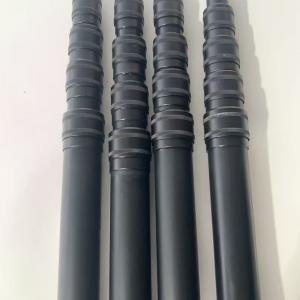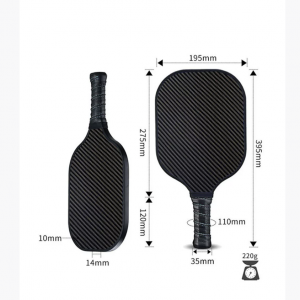What are the advantages and disadvantages of carbon fiber products used in cars
Carbon fiber products have become increasingly popular in the automotive industry due to their lightweight and high-strength properties. However, they also come with their own advantages and disadvantages.
Advantages:
Lightweight: Carbon fiber is much lighter than traditional materials like steel or aluminum, which can significantly reduce the weight of a vehicle. This, in turn, can improve fuel efficiency and performance.
High Strength: Carbon fiber is incredibly strong and can withstand significant stress and impact. It is stronger than steel and has a high strength-to-weight ratio, which makes it an ideal material for high-performance sports cars.
Design flexibility: Carbon fiber can be molded into complex shapes, which makes it a popular material for designers. It can also be used to replace multiple components, which reduces the number of parts and simplifies the manufacturing process.
Corrosion resistance: Carbon fiber is not affected by moisture, chemicals or other environmental factors that can cause rust and corrosion, which is a significant advantage in harsh environments.
Disadvantages:
Cost: Carbon fiber products are expensive, which can make them unaffordable for many consumers. It is also more expensive to repair or replace than traditional materials.
Difficulty of repair: Carbon fiber can be challenging to repair after damage, and repairs are often more costly than those for traditional materials. Specialized knowledge and equipment are required to repair carbon fiber components, which can also make it difficult to find qualified technicians.
Durability: Although carbon fiber is incredibly strong, it can be brittle and prone to cracking or shattering under extreme impact, which can make it less durable in some cases.
Environmental impact: Carbon fiber products require energy-intensive production methods, and the manufacturing process can produce harmful emissions. Additionally, carbon fiber products are not biodegradable and can be difficult to recycle.
Carbon fiber products have been touted as a potential game-changer in the automotive industry due to their lightweight and durable properties. However, it is true that the use of carbon fiber in cars is not necessarily the future trend.
There are a few reasons why this might be the case. Firstly, carbon fiber is still a relatively expensive material to manufacture and use compared to other materials such as aluminum or steel. This means that it may not be cost-effective for mass-produced vehicles.
Additionally, carbon fiber has some disadvantages when it comes to repair and maintenance. It can be more difficult and costly to repair a carbon fiber component compared to a metal component, and this could be a consideration for manufacturers and consumers.
Finally, there is also the issue of sustainability. Carbon fiber production requires a significant amount of energy and emits greenhouse gases, and the disposal of carbon fiber products at the end of their life can also be a challenge.
While carbon fiber may continue to be used in high-end and specialized vehicles, it may not become the dominant material in the automotive industry as previously expected. Instead, there may be a focus on developing more sustainable materials and manufacturing processes that can still provide the necessary strength and durability while being cost-effective and environmentally friendly.
# carbon fibre tubes & rods #carbon fiber strip/bar #carbon fiber pipe #carbon fiber plate #carbon fiber sheet #tubes ronds carbone #joncs carbone #Carbon fiber #Composite materials #Carbon fiber medical kit #carbon fiber beam #carbon fiber tube end connector, joints #wind energy #Medical equipment #Carbon fiber helmet #Carbon fiber surfboard #Aerospace #Automotive #Sports equipment




















